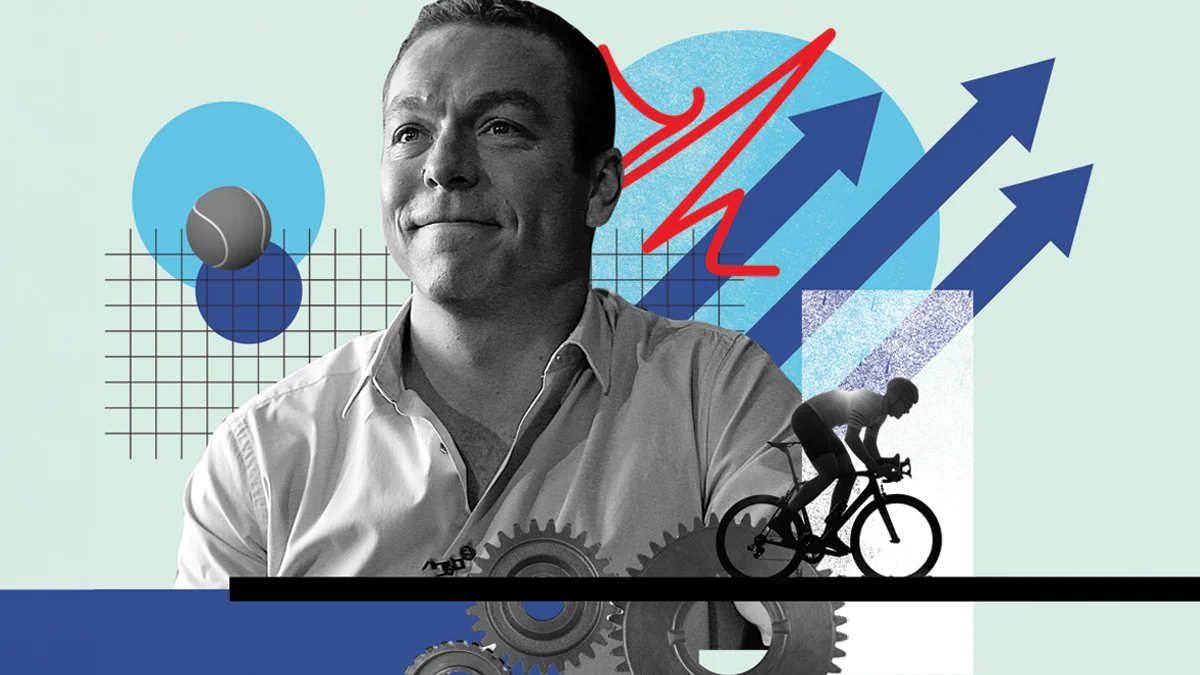
I was privileged to give a talk recently at King’s College, Cambridge, where I asked the audience to reflect on a couple of questions that evening: when you’re feeling under pressure, how do you respond? And what do you say to yourself?
In the Q&A session afterwards, one of the audience members asked why I had chosen to focus on that area. My response? Elite sport can teach us some brilliant lessons around how we manage our emotions and respond to pressure.
It is precisely these moments that are built into the fabric of how elite sport operates.
Pressure itself is just as real away from elite sport and, whatever the environment, increased pressure drives an emotional response. We all have feelings, even those who like to pretend they do not. Our emotions can help our performance, but they can also hinder it; our ability to manage them is critical to sustained long-term performance.
Some of the high-pressure situations commonly faced by those in business include taking on a new role, spearheading or pushing through significant change, scaling up a business and pitching for much-needed funding. In any of these scenarios, we can let the pressure get to us and get hijacked by our emotions, impacting adversely on our performance both in the moment and in the long term.
Or we can flip the script and learn how to use our emotions to our advantage, enabling us to achieve our potential and sustain our performance. So, what are the lessons that
elite sport can teach us about handling and managing pressure?
Step one: Own it
The clear lesson that the field of sports psychology has shown over the past 20 years is the importance of recognising that emotions play a part in performance. The key is to own that response. In my book Staying the Distance, I tell the story of the cyclist Sir Chris Hoy and the moment when he realised that he needed to own – and develop – this area of his performance.
He was already successful (he had won a world title and an Olympic silver medal) but he knew he could do better. He realised that, due to the circumstances surrounding one race in particular, this element was holding him back.
Elite sport has accepted that an emotional response to pressure is normal. This means you can build an ability to deal with – and even leverage it – to drive positive performance over a sustained period.
Step two: A shift in mindset
The answer to dealing with pressure lies in a simple change in mindset. Elite sport and the sports psychologists who operate in this field work hard at helping athletes adopt a 'challenge' as opposed to a 'threat' mindset.
By doing this, it enables us to move our neural activity away from the amygdala (which triggers our flight, fight or freeze response) to the pre-frontal cortex, which is responsible for executive planning and control. That will mean you are alert, ready and excited, rather than tense, agitated or worried. This doesn’t mean attempting to cancel out all reactions but instead being focused on discarding the unhelpful emotions, while keeping, generating and leveraging the more helpful ones.
This is backed up by research from Harvard Business School, conducted by associate professor Alison Wood Brooks. The experiment focused on people executing various activities that generated pre-performance anxiety: doing maths problems in front of others, public speaking and karaoke singing.
Some of the individuals were encouraged to reframe their anxious sentiments as excitement. The results demonstrated that harnessing the feelings caused by anxiety and using those same sensations positively, turning them into excitement, had a beneficial effect on performance.
Step three: Self-talk
Self-talk is an accepted focus area in the world of sport, so it always amazes me that it’s not more widely discussed in the fields of business and leadership. Who do you think you spend most of your time talking to? For most people, it’s themselves.
One of the first pieces of research on this area in the world of elite sport was carried out by performance psychologist Jim Loehr, when he brought together a group of elite tennis players for a week-long experiment. He asked them all to voice their self-talk during both training and matches throughout the week and recorded it. He condensed the recordings for each player to a five-minute reel and asked them to listen to it.
The results? They were shocked by the negativity in their comments. “I’m rubbish,” said one. “My forehand is awful,” said another. “I shouldn’t be on this court,” said a third.
Off the back of this exercise, Loehr and his players spent time working on changing their self-talk to language that was much more positive and constructive. Accordingly, the results flowed in a more positive way.
The Harvard research referred to above reinforces this point. Participants were assigned phrases and told to tell themselves, either “I am calm” or “I am excited”. Just the use of the latter phrase had a positive impact on their state of mind and their performance.
The trick here is to experiment and see what might work for you. It could be a word, phrase, or even a question that works best. Danny Kerry, coach of the GB women’s hockey team that won gold at the Rio Olympics in 2016, asks himself “where am I?” and “where do I need to be?” to make sure he is in the right place.I know of other leaders who use sticky notes or similar as visual reminders to help them stay in a challenge mindset.
So, let’s consider those questions I posed at the start again. When you’re feeling under pressure, how do you respond? And what do you say to yourself? Take the time to consider both and you may find you start to understand yourself and how you can manage pressure more effectively.
Catherine Baker is the founder and director at Sport and Beyond, and the author of Staying the Distance: The Lessons from Sport that Business Leaders Have Been Missing
Related and recommended
Contestants from The Apprentice reveal the fundamental business lessons they learned from taking part in the TV show
From global talent pools to AI-powered documentation, a work-from-anywhere model is a new way of thinking about productivity, innovation and teamwork
The story of how cycling brought Business Leader member John Readman together with his co-founder and investors
Stuart Machin’s hands-on leadership has revived M&S, tripling its share price and reshaping its future, by obsessing over the details, from shop floors to staff message boards





